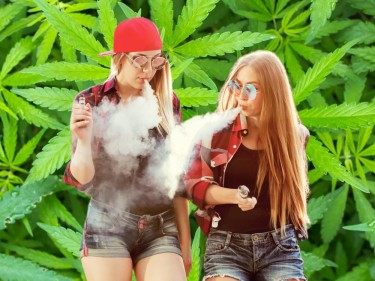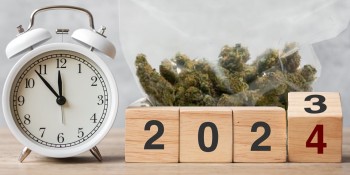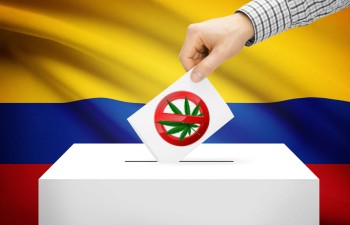
The Hemp Gets You High Dilemma: Does America Need Federal Regulation?
The American landscape is changing, and not just politically or socially. A subtle but significant shift is occurring in the realm of cannabis consumption, driven by the rise of intoxicating hemp products. These products, often boasting psychoactive compounds like Delta-8 THC and other synthesized cannabinoids, have flooded the market, offering a readily accessible alternative to traditional cannabis in states where it remains illegal or heavily restricted. However, this burgeoning industry operates largely in a regulatory vacuum, raising serious questions about public health, consumer safety, and the potential for unintended consequences. The question, therefore, isn’t just whether America can regulate intoxicating hemp products, but whether it must.
The legal foundation for this current situation lies in the 2018 Farm Bill, a piece of legislation intended to revitalize the agricultural sector by legalizing the cultivation of hemp. Defined as cannabis with a delta-9 tetrahydrocannabinol (THC) concentration of no more than 0.3% on a dry weight basis, hemp was removed from the Controlled Substances Act, effectively opening the door for a new industry. While the Farm Bill aimed to foster the growth of hemp for its myriad industrial applications – from textiles to building materials – it inadvertently created a loophole that enterprising businesses have exploited: the extraction and conversion of hemp-derived compounds into intoxicating substances.
This loophole has led to the proliferation of products containing Delta-8 THC, Delta-10 THC, THC-O acetate, and other synthesized cannabinoids. While these compounds may be derived from legal hemp, their intoxicating effects can be comparable to, or even stronger than, Delta-9 THC, the primary psychoactive component of traditional cannabis. The problem lies not in the simple existence of these compounds, but in the lack of consistent regulation governing their production, testing, and sale.
The Regulatory Vacuum and its Consequences
Currently, the Food and Drug Administration (FDA) has limited authority over these products. While they can issue warning letters to companies making unsubstantiated health claims or using unsafe manufacturing practices, they lack the power to effectively regulate the entire industry. This regulatory vacuum has resulted in a number of concerning consequences:
-
Lack of Quality Control and Testing: Many intoxicating hemp products are produced without rigorous quality control measures. This means consumers are often unaware of the actual potency of the product they are consuming, leading to unpredictable and potentially dangerous experiences. Furthermore, independent lab testing, when it exists, is often unreliable or incomplete, failing to detect contaminants like heavy metals, pesticides, or residual solvents used in the extraction and conversion processes. This poses a significant risk to consumer health, particularly for those with underlying medical conditions.
-
Misleading Labeling and Marketing: The absence of standardized labeling requirements allows companies to make misleading claims about their products’ effects, ingredients, and safety. Many products are marketed as “legal” alternatives to cannabis, appealing to consumers seeking a psychoactive experience without understanding the potential risks associated with unregulated substances. This is particularly concerning for young adults and teenagers, who may be more vulnerable to deceptive marketing tactics.
-
Accessibility to Minors: Because intoxicating hemp products are often sold online and in convenience stores, gas stations, and vape shops, they are readily accessible to minors. This is a major concern, as early exposure to psychoactive substances can have detrimental effects on brain development and increase the risk of addiction and mental health problems. While some states have implemented age restrictions on the sale of these products, enforcement is often lax, and online retailers can easily circumvent these regulations.
-
Potential for Adverse Health Effects:The long-term health effects of consuming synthesized cannabinoids are largely unknown. While some individuals may experience mild side effects like anxiety, paranoia, or drowsiness, others may suffer more severe reactions, including seizures, hallucinations, and cardiovascular problems. The lack of research on these compounds makes it difficult to assess the true extent of the risks and develop appropriate guidelines for safe consumption.
-
Erosion of the Legal Cannabis Market: In states where cannabis is legal, the unregulated sale of intoxicating hemp products can undermine the legal cannabis market. These products often offer a cheaper alternative to regulated cannabis, tempting consumers to choose the unregulated option despite the potential risks. This not only reduces tax revenue for state and local governments but also threatens the viability of legal cannabis businesses, which are subject to stringent regulations and high taxes.
The Arguments for Federal Regulation: A Matter of Public Health and Safety
Given these consequences, the argument for federal regulation of intoxicating hemp products becomes increasingly compelling. The need for a national framework stems from several key factors:
-
Protecting Public Health: The primary justification for federal regulation is the protection of public health. By establishing consistent standards for production, testing, and labeling, the federal government can ensure that consumers have access to safe and reliable products. This includes setting limits on the levels of contaminants, requiring accurate potency labeling, and mandating warnings about potential risks.
-
Preventing Access to Minors:Federal regulation can help prevent minors from accessing intoxicating hemp products by establishing national age restrictions and requiring retailers to verify the age of purchasers. This could involve implementing stricter online sales regulations and increasing enforcement efforts at brick-and-mortar stores.
-
Ensuring Fair Competition: A national regulatory framework would create a level playing field for businesses operating in the hemp industry. This would prevent unscrupulous companies from gaining an unfair advantage by cutting corners on quality control and safety. It would also help to foster a more sustainable and responsible industry, benefiting both consumers and businesses.
-
Facilitating Research: Federal regulation can also facilitate research into the potential benefits and risks of intoxicating hemp products. By establishing standardized testing protocols and data collection methods, the federal government can help researchers better understand the effects of these compounds on the human body and develop evidence-based guidelines for safe consumption.
-
Harmonizing State Laws: The patchwork of state laws governing intoxicating hemp products creates confusion for consumers and businesses alike. A national regulatory framework would provide clarity and consistency, making it easier for companies to operate across state lines and for consumers to understand their rights and responsibilities.
Potential Federal Solutions: A Multi-Pronged Approach
Several potential solutions exist for regulating intoxicating hemp products at the federal level:
-
Amending the Farm Bill: One approach is to amend the 2018 Farm Bill to clarify the definition of hemp and restrict the production and sale of intoxicating hemp-derived products. This could involve setting stricter limits on the levels of psychoactive compounds allowed in hemp products and prohibiting the conversion of hemp-derived CBD into other cannabinoids like Delta-8 THC. However, this approach may face resistance from the hemp industry, which argues that it would stifle innovation and limit consumer access to potentially beneficial products.
-
Enacting a New Federal Law: Another option is to enact a new federal law specifically regulating intoxicating hemp products. This law could establish comprehensive standards for production, testing, labeling, and marketing, as well as setting age restrictions and enforcement mechanisms. This approach would provide greater clarity and control over the industry but could be more challenging to implement and may face political opposition.
-
Granting Authority to the FDA: A third approach is to grant the FDA greater authority to regulate intoxicating hemp products under the existing Federal Food, Drug, and Cosmetic Act. This could involve classifying these products as drugs or dietary supplements, subjecting them to rigorous testing and approval processes. However, this approach may be time-consuming and expensive and may not be suitable for all types of intoxicating hemp products.
-
A Combination of Approaches: The most effective solution may involve a combination of these approaches. For example, Congress could amend the Farm Bill to clarify the definition of hemp while also granting the FDA greater authority to regulate intoxicating hemp products under the existing law. This would provide a comprehensive and flexible framework for addressing the challenges posed by this rapidly evolving industry.
The Road Ahead: Balancing Innovation and Regulation
Ultimately, the decision of whether and how to regulate intoxicating hemp products will require a careful balancing act between promoting innovation and protecting public health and safety. The goal should be to create a regulatory framework that allows responsible businesses to thrive while ensuring that consumers have access to safe and reliable products. This will require collaboration between federal and state governments, as well as input from industry stakeholders, researchers, and consumer advocacy groups.
The rise of intoxicating hemp products presents a complex and evolving challenge. Failing to address this challenge effectively could have serious consequences for public health, consumer safety, and the integrity of the legal cannabis market. By taking decisive action to regulate these products, the United States can ensure that the benefits of the hemp industry are realized while mitigating the potential risks. The time for action is now, before the regulatory vacuum widens and the potential for harm grows even greater.






